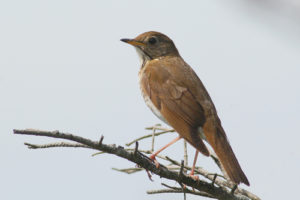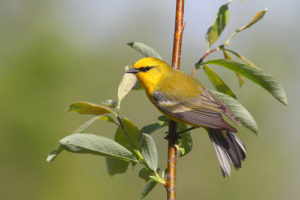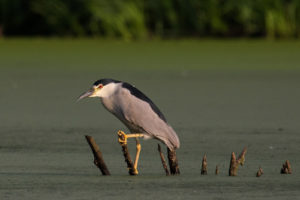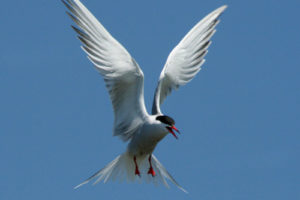Vermont’s Rare, Threatened, and Endangered Birds





Instructors: Allan Strong
June 15 – 16 | $295
This course will explore the life histories of Vermont’s rarest birds. We will travel to important habitats to see these species and discuss the threats that are facing these birds and their habitats. We will talk about the data that we use to understand the status of these species’ populations, how we make decisions about the severity of the threats to their populations, how we protect these species, and strategies for these species’ recovery.
Although the federal Endangered Species Act receives significant national attention, the state of Vermont has also enacted an Endangered Species Act that protects both the species themselves, as well as their habitat. Vermont has 11 bird species that are listed as endangered and two that are listed as threatened. Additionally, there are about 30 species in Vermont that have been placed in a category called “species of special concern” (rare species) that provides some protection for their habitat when the state is addressing development issues. As perhaps expected, many of Vermont’s rare, threatened, and endangered species are found in rare or endangered habitats: wetlands, grasslands, early successional scrub-shrub, and high elevation spruce-fir forests.
Course Objectives and Goals
- Participants will be familiar with the rare, threatened, and endangered birds of Vermont and their habitat requirements.
- Participants will understand why species are listed as rare, threatened, and endangered.
- Participants will be able to talk about the factors that threaten these birds’ populations and some of the potential solutions for their recovery.
- Participants will spend time observing some of Vermont’s rare, threatened, and endangered species in the field.
About the Instructor(s)
Allan Strong is a Professor at the University of Vermont in the Rubenstein School of Environment and Natural Resources. He is a member of Vermont’s Endangered Species Committee, which makes decisions about listing species as endangered or threatened and addresses permit requests that might result in “takes” of these species. He has studied birds in a variety of places (Vermont, New Hampshire, Arkansas, Jamaica, and Indonesia); much of his work is focused on avian natural history and how that impacts conservation. He is active in the Vermont birding community, serving on the Vermont Bird Record Committee and participating in citizen science programs. Much of his recent research focuses on Vermont’s grassland birds and developing strategies for their protection, which includes working directly with landowners to manage habitat on private lands.
Lodging Options
Biodiversity University is no longer offering lodging for participants. However, there are several nearby options at a similar price point. We recommend the following options:
- Capitol Plaza ($200/night; Montpelier)
- The Inn at Montpelier ($200/night; Montpelier)
- High Hill Inn ($150/night; East Montpelier)
- Comfort Inn and Suites ($120/night; Berlin VT)
- Marshfield Inn and Motel ($100/night; Marshfield, VT)
- AirB&B ($60-$150+/night; options vary)
Meals
Saturday breakfast, field lunch, and family-style dinner included.
Sunday breakfast and field lunch included.
Required and Recommended Reading
Required:
- Sibley, D.A. 2016. The Sibley Field Guide to Birds of Eastern North America: Second Edition. (Or your recently-published field guide of choice).
Recommended:
- Renfrew, R. 2013. Second Atlas of Breeding Bird Vermont
- Gill, F. 2006. Ornithology. Third Edition. Freeman, W.H. & Company.
- Additional recommended texts will be provided in advance of the course.
Timing
Course begins 8 AM on June 15 at North Branch Nature Center. Course concludes at 5 PM on June 16 at North Branch Nature Center. Any participants arriving Friday evening will be met by a staff member for an orientation and welcome.
Academic Credit / Professional Development options:
This course qualifies for 1 graduate-level science credit for an additional $150 course fee. All BioU courses are accredited by Castleton University. It is each student’s responsibility to ensure that their home institution will transfer the credit. Participants pursuing academic credit will be required to complete an additional assignment above and beyond the course hours, including literature review, reflective writing, and/or a field-based project.
This course qualifies for 22 hours of professional development hours and continuing education units. Certificates of completion are included in the course fee, and are available upon request.

713 Elm Street
Montpelier, Vermont 05602
(802) 229-6206
Hours: Center Open Monday-Friday 9-4
Trails Open 24/7


